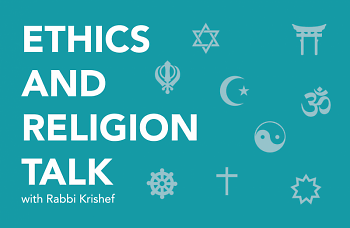The Reverend Colleen Squires, minister at All Souls Community Church of West Michigan, a Unitarian Universalist Congregation, responds:
"For me this is a complicated question. I certainly support our society holding people accountable for their hurtful actions. As individuals we need to take responsibility when we have caused harm. I do not see controversy in being held accountable. And I am against a mob mentality and divisive partisanship, trying to tear good people or causes down just because they disagree with your politics is wrong. This kind of mob mentality is a true dumbing down of our collective humanity, we can do better than our current state of society.
Some say just let things go or let’s all just get along and avoid the divisive topics. I think this James Baldwin quote speaks best about this misunderstanding of cancel culture and how it’s an abuse of power – “We can disagree and still love each other unless your disagreement is rooted in my oppression and denial of my humanity and right to exist.”
Chic-fil-A is a popular fast food restaurant. They are a conservative Christian company. According to the National LGBTQ Task Force, the company has donated millions of dollars to anti-LGBTQ groups. I support their right to practice their religion as they wish, but I cannot support their anti-LGBTQ actions. I simply will not eat there or give money to their company."
Fred Stella, the Pracharak (Outreach Minister) for the West Michigan Hindu Temple, responds:
"As with so many of these catchy political phrases, the subject is much more complicated than what lies on the surface. This does not mean that I do not acknowledge its existence and have concerns. When I look back on the events of a few years ago, it becomes obvious that some people were removed from public view for offenses that, in my mind, did not warrant such punishment. Al Franken should still be a senator. Garrison Keillor should still be hosting The Writer’s Almanac. Prominent academics who have been removed from their departments should still be teaching.
But the term is also used to denigrate the removal of false and dangerous information from public forums. In particular, the fraudulent claims concerning COVID-19 that are ubiquitous on platforms should not go unchallenged. Yes, Trump’s social media accounts should have been cancelled for spreading democracy-killing lies.
And people will obviously ask about just who should be the arbiter of “truth.” Fair enough. If we give that responsibility to the government, we run certain risks; especially if an administration can benefit by squashing dissenting views. And we certainly have had plenty of episodes in our history when our government did poison the well with disinformation. Vietnam is a perfect example.
I cannot offer a panacea for this challenge. While the situation isn’t new, we’ve never had to deal with it on this level, especially with the proliferation of bots and other online mischief. It’s a conversation that needs to continue."
Father Kevin Niehoff, O.P., a Dominican priest who serves as Judicial Vicar, Diocese of Grand Rapids, responds:
"Cancel culture is a phenomenon created by social media to bully others, like forcing brands that do not conform to the bully’s worldview to make changes. Examples are Aunt Jemima and Mrs. Butterworth’s now-named Pearl Milling Company and Apple’s planned obsolescence.
The principle behind the creation of cancel culture is not necessarily wrong. Sometimes change is necessary. I find sending an email of my observations to a company helpful. About a year ago, I found a television commercial offensive because it treated children as disposable. I emailed the company while sitting in front of the television. I explained how the commercial made me feel. I did not go on a social media attack. That commercial no longer airs."
The Rev. Sandra Nikkel, head pastor of Conklin Reformed Church, responds:
"There will always be foolish people in this world and there will always be people who feel that it's their job to silence them and shame them in order to change them. However, there are better ways to make an impact in this world than to shame foolish people. The Bible is filled with wisdom on how to treat a fool. We should not answer a fool according to his folly, lest we become like him. Instead we ought to rise above with gentleness and truth that exposes their folly. People can't hear the truth if they're being shamed. Thus, we need to guard ourselves from thinking that we know best and that our ways are always best for everyone around us. "Trust in the Lord with all your heart and lean not on your own understanding; in all your ways submit to him, and he will make your paths straight. Do not be wise in your own eyes; fear the Lord and shun evil" (Proverbs 3:5-7)."
This column answers questions of Ethics and Religion by submitting them to a multi-faith panel of spiritual leaders in the Grand Rapids area. We’d love to hear about the ordinary ethical questions that come up in the course of your day as well as any questions of religion that you’ve wondered about. Tell us how you resolved an ethical dilemma and see how members of the Ethics and Religion Talk panel would have handled the same situation. Please send your questions to [email protected].
The Rapidian, a program of the 501(c)3 nonprofit Community Media Center, relies on the community’s support to help cover the cost of training reporters and publishing content.
We need your help.
If each of our readers and content creators who values this community platform help support its creation and maintenance, The Rapidian can continue to educate and facilitate a conversation around issues for years to come.
Please support The Rapidian and make a contribution today.
